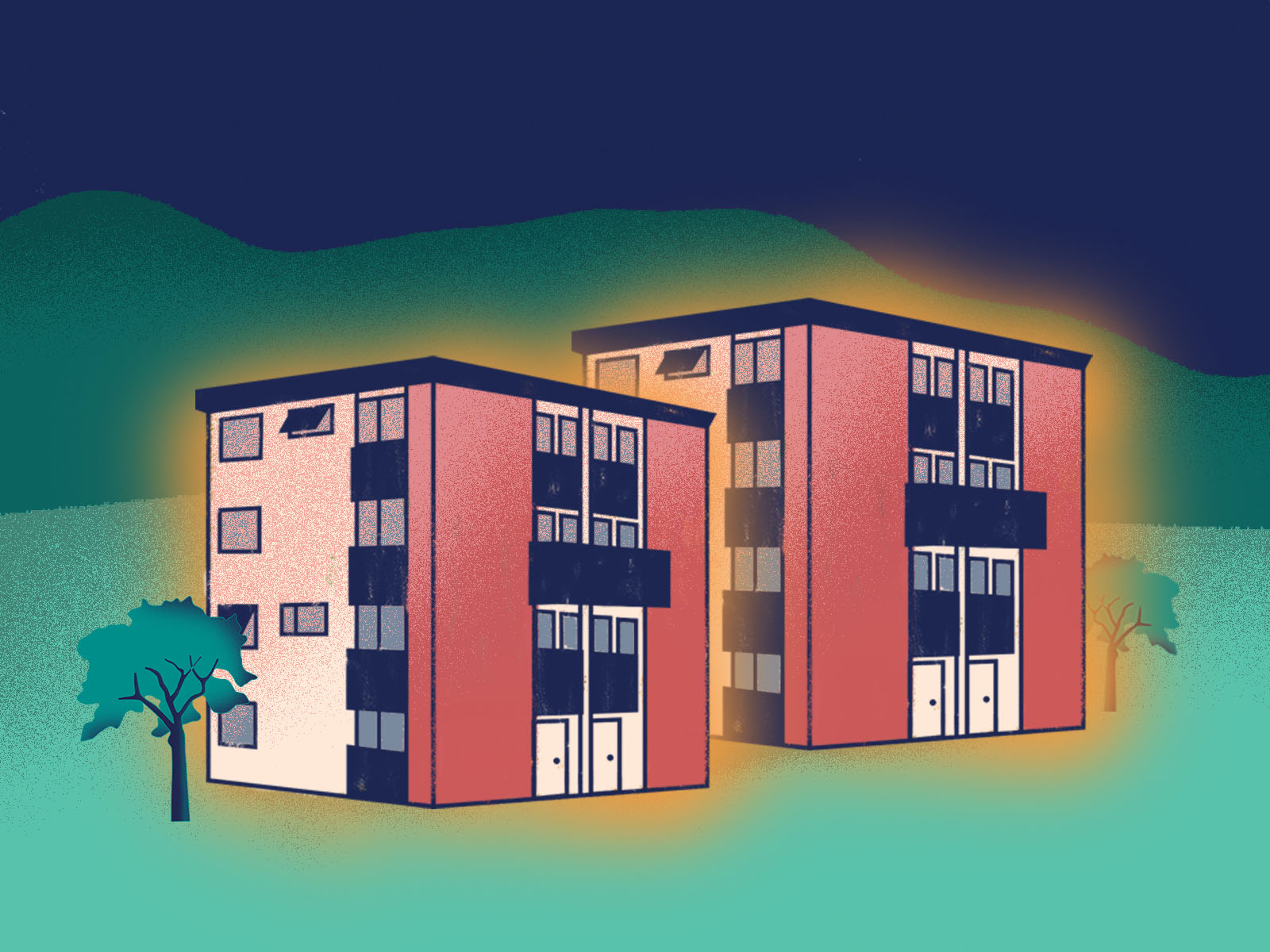23 May 2022
How is Action 14 tackling the climate emergency?
Buildings are a major source of carbon emissions. Making homes more energy efficient is crucial but many people struggle to afford the changes needed. Hastings Borough Council offers a range of services to low-income private sector residents to help make their homes cheaper and easier to heat. This also contributes to its target of being net zero by 2030.
This includes the East Sussex Warm Homes Check Service, which gives free advice and support on making homes more energy efficient to owner-occupiers and people who rent privately. Those on a low-income qualify for a free home visit and upgrades, from small works like improving insulation to bigger interventions such as insulation or new, more efficient boilers (subject to funding).
What impact has this project had?
Between November 2018 and October 2021, 990 Warm Home Checks were carried out across East Sussex for owner-occupiers and people in the private rented sector. These resulted in providing energy saving advice and the installation of minor measures such as boiler servicing and repair, lagging (insulation for water tanks and pipes) and energy-efficient lighting. In the same period around 300 homes across the county had more significant upgrades, including low carbon heating and wall insulation. It’s not possible to estimate carbon savings from this work as the primary goal is increasing warmth rather than cutting energy use.
In 2019, a detailed evaluation of heating and insulation upgrades in 149 owner-occupied or privately rented homes was carried out in Hastings and Rother. These upgrades had been funded by the local NHS Clinical Commissioning Group, prioritising areas with the highest levels of fuel poverty. It found that these measures provided substantial benefits to people’s health and wellbeing. The programme also had a positive impact on wider determinants of mental and physical health, including reductions in stress and isolation.
What made this work?
Strong partnerships, especially with the health sector, have been key. Local authorities in East Sussex have been working together to cut energy use in the domestic sector since 2007, with a long-established county-wide fuel poverty partnership. This work has mainly been driven by the public health department of East Sussex County Council.
The department chairs the East Sussex Energy Partnership, and also funds the East Sussex Fuel Poverty Coordinator post and other costs faced by Hastings Borough Council. This partnership has been very successful in securing funding from energy suppliers, the NHS and other sources.
What resources were needed?
Work has been resourced via multiple funding streams:
- The Warm Homes Health Check service is commissioned by East Sussex County Council’s public health team. This service offers advice, home visit assessments, small preventative measures and also coordinates the installation of major heating and insulation measures (where funding allows).
- The local NHS Clinical Commissioning Group.
- The Government’s Green Homes Grant, through an East Sussex Consortium Local Authority Delivery project.
- The affordable warmth component of the Energy Company Obligation. This is a government requirement of larger energy suppliers to fund improvements to the energy efficiency of homes. Suppliers can meet up to 25% of their obligation by installing energy-saving measures in homes that have been declared eligible by local authorities.
- Participating local authorities have to ensure these are households in a private tenure that are either in fuel poverty or living on a low income, and who are particularly vulnerable to the effects of living in the cold.
Council staffing
Within Hastings Borough Council, there's one full-time officer working on fuel poverty (across all tenures but with a substantial focus on the private sector) within the Housing Renewal team, with close links to East Sussex County Council’s public health team and relevant teams in other districts and boroughs. The Housing Renewal Manager and Climate Change and Sustainability Officer provide extra support.
Lessons from Hastings
For many councils, resourcing is a key barrier to replicating this kind of work – especially the lack of long-term government funding.
For Hastings, the lack of a national strategy to cut fuel poverty, including providing clarity on which owner-occupiers were eligible for help, was a challenge at the start. Now there's a national Sustainable Warmth strategy for vulnerable households which covers owner-occupiers and renters alike. The definitions are not perfect but from now on they should help councils who are starting schemes for owner-occupiers. Hastings council found that close working between all the local authorities within East Sussex, plus bringing in health partners, was key to overcoming these barriers and enabled the council’s ability to secure funding from a wider range of sources.
The partners are continually raising awareness of fuel poverty through training for frontline staff and in communications, as well as highlighting the numerous benefits of improving energy efficiency across all levels of local authorities, community and voluntary sectors. As well as raising awareness of the help that’s on offer, and who is eligible, this is also intended to equip frontline staff to advise householders on reducing their energy use.
Another factor in the success of the project has been the provision of continuous service with a single point of contact over many years. Many initiatives are stop-start in response to funding from the government. Other councils may want to consider how best they can offer continuity even within this challenging funding situation.
Councils should also add their voice to calls for more long-term funding for local authorities to tackle fuel poverty, for example by signing up to "A Blueprint for accelerating climate action at a local level", published by Friends of the Earth, Ashden and other local governmental, environmental and research organisations.
Louise Trenchard, East Sussex Fuel Poverty Coordinator
Friends of the Earth's view
This is an excellent example of a council taking a joined-up approach to tackling health inequalities and climate change. It also demonstrates how councils can have an impact beyond their own operations and council-owned buildings.
All councils need to identify vulnerable communities in their areas (Actions 11 and 12 in the Climate Action Plan for Councils), ensure they are represented in decisions on climate change and target action on these people and areas. Councils need to address fuel poverty across tenures but could start with improving poorly insulated council homes (Action 13 in the Climate Action Plan for Councils).
Friends of the Earth is showcasing specific examples of good practice in tackling climate change, but that doesn’t mean we endorse everything that a council is doing.
This case study was produced by Ashden and Friends of the Earth.





